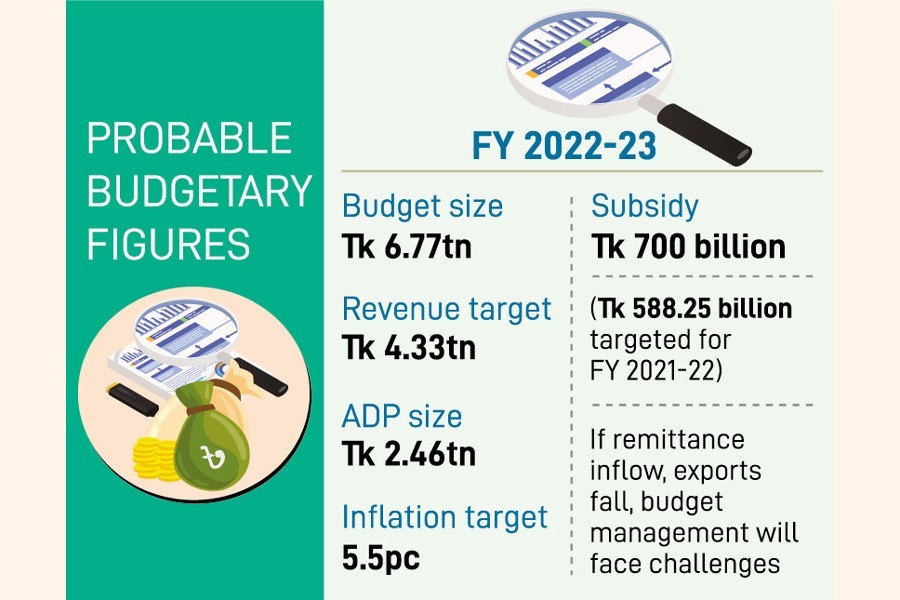Price spiral and consequent hefty subsidy requirements turn a top concern for the authors of next fiscal budget, sources said, prompting thoughts on a fresh hike in key utilities' rates.
Finance ministry officials Monday submitted a budget outline to Prime Minister Sheikh Hasina where the issue of high subsidies on gas, electricity and fertiliser and also the rising inflation figured high during discussion, they added.
An immediate upward revision of prices of gas, electricity and fertiliser was also discussed at the meeting since the requirement of subsidy this time is figuring all-time high, officials said.
A senior finance ministry official told the FE Tuesday necessary instructions had been given to the ministries concerned to take measures for price adjustment. And they got down to doing the arithmetic.
He said the government was now in a dilemma as to whether to enhance fertiliser prices at this moment though the subsidy requirement for agriculture sector has increased every year.
Last time fertiliser prices were increased back in 2014, but not adjusted since, he said, adding that fertiliser price is "very low in Bangladesh now".
A recent finance ministry proposal to readjust fertiliser prices did not get the go-ahead from the Prime Minister's Office, the official mentioned.
The ministry of finance has advocated for the price adjustment of the items since December last year for cutbacks on subsidy requirements amid their severe price spiral on the global market.
"The rule is price adjusting of such items in line with global market as we are import- dependent for them," says the official to substantiate the move.
He feels that for the next fiscal year some Tk 700 billion may be required to put aside to foot the bill for subsidies and incentives-accounting for a nearly 50-percent hike compared to the present budget allocation on this head.
In the current fiscal year's budget some Tk 458.52 billion was earmarked for subsidies and incentives, which was revised later upward to Tk 588.25 billion to meet the exigencies.
"The main challenge is higher subsidy and keeping inflation under control," says the official, who is involved with the budget preparation.
Sources said usually the government keeps aside some Tk 90 billion as agriculture subsidy in the budget. However, this time around the ministry of agriculture demands Tk 280 billion to meet subsidy requirement for next fiscal year.
The finance ministry official guesses that unless remittance inflow makes a good recovery again and if export falls to some extent, budget management will face tremendous challenges.
A framework of the budget for next fiscal year was placed in the meeting which estimated that the total outlay will be Tk 6.77 trillion. Total revenue earning is targeted at Tk 4.33 trillion of which Tk 3.7 trillion will be realised by the National Board of Revenue.
Last month, a meeting of the coordination council on fiscal, monetary, and currency exchange, chaired by finance minister AHM Mustafa Kamal, estimated that the budget size for the next fiscal year will be Tk 6.77 trillion while the total revenue earning targeted at Tk 4.33 trillion.
The size of annual development programme (ADP) is estimated at Tk 2.46 trillion.
The meeting also set a target to bring down inflation within the ideally set 5.5-percent bracket in next fiscal year from as high as 6.22 per cent, fuelled by steep price rises, this past march.


